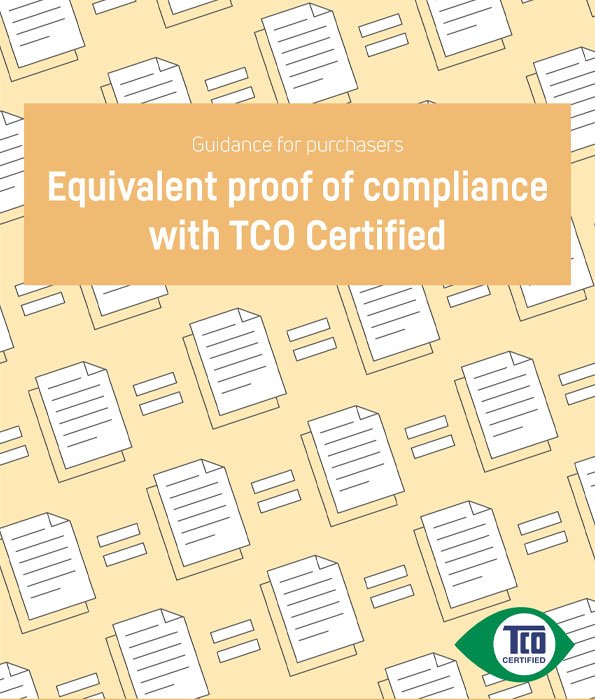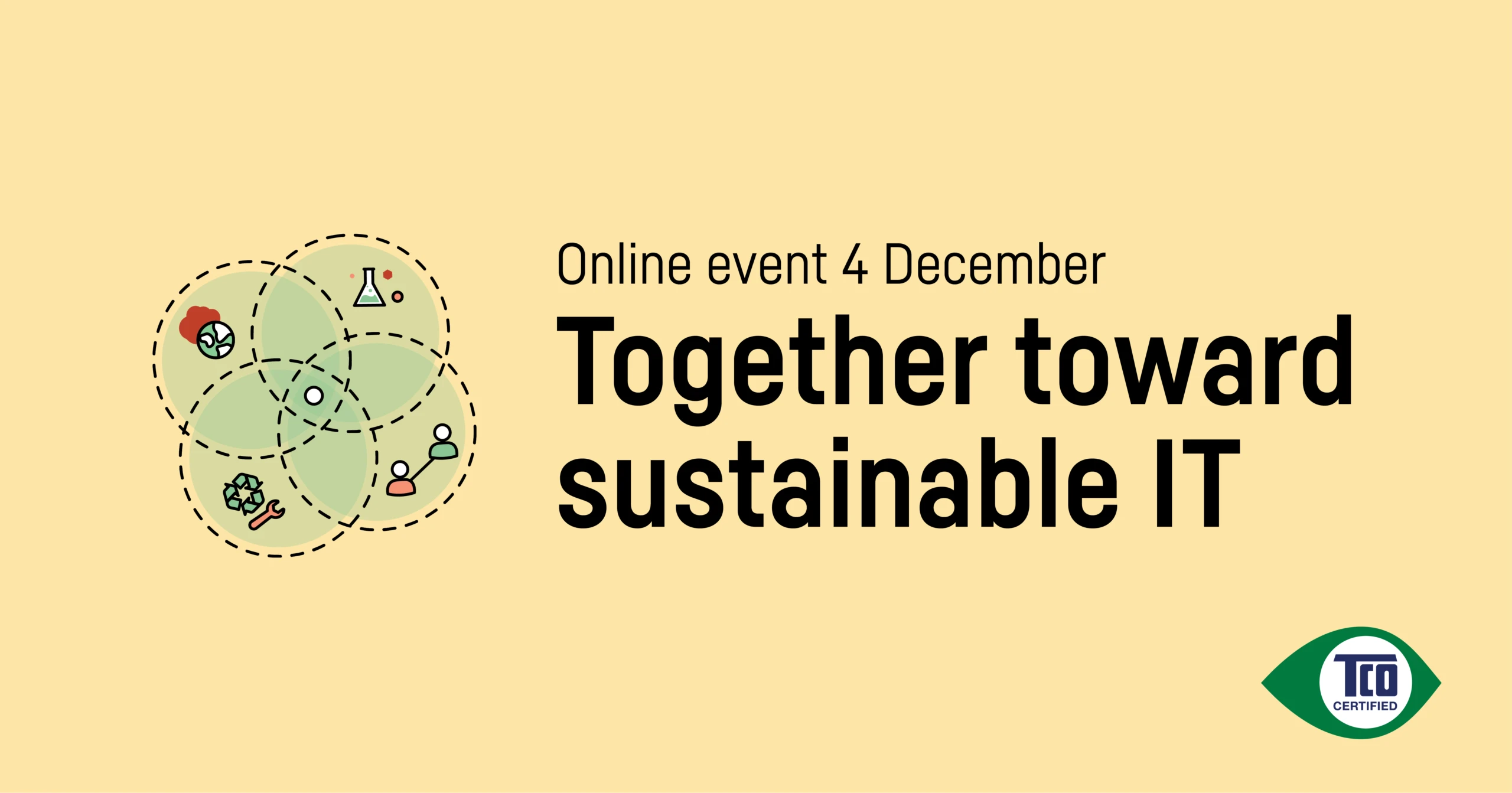As a purchaser you are under increasing pressure to pay attention to sustainable procurement, which means that the products and services you buy must be as sustainable as possible, with the lowest environmental impact and most positive social results.
To do that you need to set relevant criteria. The easiest way of doing that is to include criteria from a sustainability certification, like TCO Certified, and ask for a valid certificate to verify compliance with the social and environmental sustainability criteria in the certification.
When specifying an ecolabel or certification by name, you may be required to accept equivalent proof with its underlying criteria. For example, it is currently mandatory for all public purchasers in the EU to accept every valid type of proof of compliance with the criteria you set. Evaluating the validity of the proof you receive from your vendor is therefore a central issue for procurement if they are really to drive sustainability. If not done properly, you may purchase products or services that are not actually meeting the sustainability performance you were looking for. To date, there is no official standard for determining the equivalence between different methods of proof submitted by bidders.
What does equivalent proof of compliance really mean?
In the case of IT products, you can use TCO Certified to set relevant criteria. Our certification is built on the most comprehensive and up to date social and environmental sustainability criteria, including social responsible manufacturing. Criteria in TCO Certified create a framework to continuously and systematically improve working environments and conditions in the supply chain. Specifying TCO Certified in your IT purchasing specifications is the best way to make sure you receive products that are verified to meet all the sustainability criteria in the certification. Ask your vendor for certificates verifying that all product models delivered during the contract period are certified according to TCO Certified.
One thing to remember when it comes to accepting equivalent proof of compliance instead of a certificate: You also need to be able to evaluate the equivalency of any alternative proof potentially provided by suppliers instead of a TCO Certified certificate.
How do I verify environmental and supply chain sustainability?
Providing equivalent proof of compliance with TCO Certified is a challenging and comprehensive process. This is because verifying environmental and supply chain sustainability in IT is incredibly complex work that requires specialist expertise and access to the IT brand owners and factories. The verification system included in TCO Certified builds on such expertise and access, and is designed to ensure accuracy, measure sustainability progress and provide the necessary reassurance to purchasers who use TCO Certified for their IT products. Asking for TCO Certified certificates is the best way of verifying compliance according to the social and environmental sustainability criteria in the certification.
What are the risks of not asking for proof of compliance?
If you don’t specify how you will consider the different types of proof of compliance for the sustainability criteria you have set, you’re raising the risk for your tendering process to be legally challenged and invalidated. There are many examples of unsuccessful bidders filing lawsuits against unfavorable award decisions just because the selection parameters were too vague or not specified enough beforehand – which allows them to incriminate the whole tendering process for alleged favoritism/unfair competition. By setting clear rules for how proposals will be assessed and what proof of compliance will be accepted for the requirements you have set, you’re able to lower that risk.
To be sure, assessing proof of compliance can be confusing and is not easy for most purchasers to do alone. This presents another risk – where irrelevant or insufficient proof is provided. So, you need to set a clear framework that will guide you in determining what proofs can be accepted and how they will be compared with one another. This is the only way to accurately assess the sustainability performance of the different offers you have received.
What evidence is needed for a product to be considered compliant?
If you don’t get a valid TCO Certified certificate as proof of compliance, we’ve published some guidance for purchasers “Equivalent proof of compliance with TCO Certified”. Here we list all the evidence needed for a product to be considered compliant with TCO Certified.
And remember – when setting sustainability requirements and their accepted proof of compliance in a tender, it is important to specify that any evidence must always be provided by independent verifiers. Self-declarations should indeed be prohibited. Independent verification is the only method for being able to perform an objective, impartial and accurate assessment of the sustainability merits of each offer. That’s why asking for TCO Certified certificates is the best way of verifying compliance as independent verification of all criteria is included.

Barton Finn leads our support to purchasers for the Benelux region and French speaking Europe and occasionally writes for the TCO Certified Blog. Barton is passionate about sustainability, IT, procurement and Tarantino movies.





